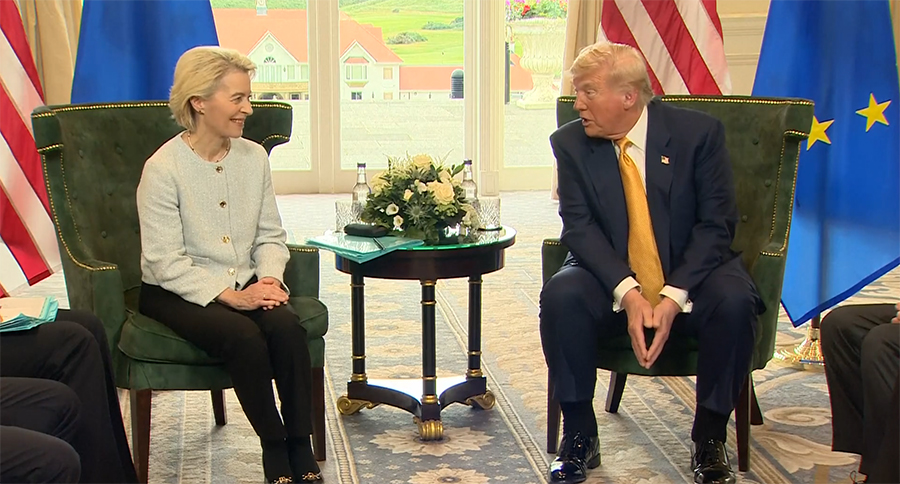
“The European Union has agreed to purchase significant quantities of U.S. military equipment.”This was the key statement from the White House following the much-debated trade agreement between the United States and the European Union. While the deal has drawn criticism in Europe, like all political agreements it stems from compromise - and is likely preferable to the alternative: no deal at all. In any case, the political framework will now need to be translated into technical and legal terms.
Broadly speaking, the agreement reinforces - and even deepens - Europe’s growing energy dependence on the United States, a trend already visible in the wake of the war in Ukraine. Under the terms of the deal, European countries will spend €750 billion over the next three years on U.S. energy products, including LNG, oil, and nuclear fuels/reactors. On top of that, another €600 billion is expected to flow into the U.S. economy in the form of general imports over a similar period. This substantial capital outflow could seriously undermine the competitiveness of European industry—particularly its high-tech sector, which already lags behind its U.S. counterparts.
When it comes to defense, however, the agreement is far more vague - if not outright nebulous. Given that procurement decisions remain strictly within national purview, it's worth noting that many European countries have already made significant defense purchases from the U.S. over the past 3–4 years. These acquisition cycles will continue to shape defense capabilities for the next 10 to 20 years.
Poland is a prime example - with major orders for HIMARS and M1 ABRAMS tanks - followed by Germany’s procurement of F-35A, CH-47 CHINOOK, PATRIOT, and ARROW 3, the latter co-developed and co-produced by the U.S. and Israel.
Italy has also contributed significantly, acquiring 25 additional F-35s, G550-based special mission aircraft for SIGINT and electronic warfare, and systems like HIMARS and JUMP-20. These acquisitions-whose life-cycle costs will span decades - arguably already fulfill the “significant quantities” mentioned in the White House statement. In short, this deal does not fundamentally change the trajectory of European defense procurement. If anything, it should serve as an added incentive for Europe - and Italy in particular - to strengthen and harden its own defense industrial base. After all, Trump won’t be around forever…
(frame from official European Commission video)








